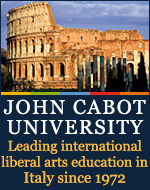
| IIE Home | Membership | Publications | Open Doors | Contact Us | Subscribe |
|
||
|
News
At the 3rd World Innovation Summit on Education in Doha, the Institute of International Education announced the launch of the IIE Center for Women’s Leadership Initiatives. The Center will build on IIE’s existing work promoting gender equity, scaling up to provide more opportunities for women worldwide to pursue higher education, participate in cutting-edge training, mentorships, and professional development and exchange programs. Through the Center's programs, women will develop and join networks of peers, mentors, and experts, enabling them to serve as effective leaders in the public and private sectors around the world. IIE’s Center for Women’s Leadership Initiatives will partner with Microsoft Corporation and other public and private funders to expand access to education and training in technology, entrepreneurship, and leadership for women worldwide. The initial focus will be on activities in the Middle East and North Africa, including Jordan, Lebanon, Algeria, Libya, Morocco, and Tunisia and Sub-Saharan Africa. Microsoft Corporation has committed financial and in-kind resources to the partnership, including its new Microsoft Micro and Small Scale Enterprise curricula. The IIE Center also launched a new initiative, the African Centers of Excellence for Women’s Leadership (ACE-Leaders), funded by the David and Lucile Packard Foundation. This three-year, $1 million program will select and support four organizations in Kenya, Rwanda, Uganda, and Ethiopia to become centers of excellence in women’s advocacy and leadership training in Sub-Saharan Africa, working in key development areas of economic empowerment, family planning, and girls’ education. For more information, please visit: www.iie.org/Who-We-Are/News-and-Events/Press-Center/Press-Releases/2011/2011-11-02-WISE-Center-For-Womens-Leadership Sir Fazle Hasan Abed has been awarded the first WISE Prize for Education in recognition of his 40-year career dedicated to alleviating poverty through education. The establishment of the WISE Prize was announced at the closing of the last WISE Summit in December 2010 as a major accolade to recognize an individual or team for an outstanding, world-class contribution to education. In addition to the gold medal, the winner receives an award of $500,000 (US). Following an international call for nominations, an 11-strong international committee of educational experts made a preliminary assessment, and a high-level Jury of five eminent individuals, chaired by Dr. Abdulla bin Ali Al-Thani, took the final decision. A specially designed gold medal, bearing the word "education" in over 50 languages, was presented to Abed in Doha (on November 1st) by His Highness Sheikh Hamad bin Khalifa Al-Thani, Amir of the State of Qatar, before 1,300 delegates at the opening session of the third World Innovation Summit for Education (WISE). Abed founded BRAC, formerly known as Bangladesh Rural Advancement Committee (BRAC), in 1972 to address the humanitarian crisis, which followed the country’s struggle for independence from Pakistan. Over the next four decades, he built the world's largest and most efficient NGO with 120,000 workers, based on the principle of empowering people to grow as individuals, to manage the welfare of their families, and to contribute to their societies. Its learning and teaching activities now reach almost 140 million people in 10 Asian, African, and Central American countries. Under Abed’s guidance they have acquired the tools to set up their own micro-businesses, become health workers, or teach generations of children. To achieve this, he established and nurtured international networks of like-minded individuals, organizations, and government institutions. BRAC is also one of the largest nongovernment providers of education in the world, contributing directly to the pre-primary, primary, and secondary education of more than 10 million students. It concentrates on bringing education to children and young people who are not reached by the traditional education system. In his citation of the Laureate, WISE Chairman H.E. Dr. Abdulla bin Ali Al-Thani said: "Fazle Hasan Abed’s life and career embody the values of WISE. He recognized that education is a passport to social inclusion and opportunity. He discovered a successful formula, and he adapted and expanded it – first in Bangladesh and then in other countries. As a direct consequence, millions of people around the world lead healthier, happier, and more productive lives. His vision, resourcefulness, and determination are vital ingredients of the innovation process, and he stands as an example to all of us who believe that education, more than anything else, determines the destiny of individuals and societies. The Jury saw him as an ideal WISE Prize Laureate." For more information about the WISE Prize, please go to: You can follow the WISE conference at www.wise-qatar.org, or you can follow IIE's feed on Twitter. The inaugural U.S.-Indonesia Higher Education Summit was held at the U.S. Department of Education in Washington, D.C., on Monday, October 31, 2011. The Summit was jointly hosted by the Government of the United States and the Government of Indonesia, and attended by more than 100 higher education leaders and government officials from the U.S. and Indonesia, as well as nonprofit and private sector leaders. The objective of the Summit was to further strengthen higher education collaboration and exchange between institutions in the United States and Indonesia through the exploration of four main topics of mutual interest: higher education governance; innovation, research collaboration, and academic exchange; the community college model; and teacher preparation. The Summit highlighted the goals of the Higher Education Partnership, announced by Presidents Obama and Yudhoyono in 2010, which aims to increase the number of students and scholars studying and researching in both countries, and to strengthen educational equality through increased collaboration and partnership. The Summit was opened by remarks from Ann Stock, Acting Under Secretary for the U.S. Department of State; Arne Duncan, the U.S. Secretary of Education; and Mohammad Nuh, Minister of Education and Culture for the Government of Indonesia. Secretary Duncan also delivered closing remarks along with Djoko Santoso, Director General of Higher Education in Indonesia. Prominent higher education and thought leaders presented during a morning plenary session, including Jack Bermingham from Highline Community College, Supriadi Rustad from the Directorate General of Higher Education in Indonesia, and Director General Santoso. IIE’s Peggy Blumenthal, Senior Counselor to the President, presented on the topic of Innovation, Research Collaboration, and Academic Exchange. Afternoon breakout sessions focused on the four main focus topics and yielded fruitful discussions about sharing information, increasing academic collaboration, and developing partnership models. For more information about the Summit, please go to: www.state.gov/r/pa/prs/ps/2011/10/176355.htm In an article in The Guardian, Will Straw, the Associate Director of the Institute for Public Policy Research, examines higher education in the UK under the framework of globalized politics. He argues that even though the UK is a leading destination for international students, it faces four primary risks: "First, Britain's HE performance against international standards is slipping...Second, the government's tighter visa regime is likely to reduce the number of students coming to the UK to study...Third, Britain's total spending on higher education lags many other countries in the rich world...And fourth, there is a danger that the lived experience of international students in the UK goes backwards." To read the full article, please visit: www.guardian.co.uk/higher-education-network/blog/2011/oct/27/globalisation-policitc-uk-higher-education?newsfeed=true EducationUSA announces the release of "Your Five Steps to U.S. Study" on the international student section of the EducationUSA website. To help students navigate their way through the sometimes overwhelming college search, application, financial aid, visa, and pre-departure process, EducationUSA recommends that students take the following steps:
Whether seeking an undergraduate, graduate, English language, or short-term/exchange program, international students will traverse their way through these different steps. EducationUSA’s goal is to broaden the reach of what their advisers on the ground can do by providing these useful, interactive guides online to better prepare students for the road ahead and to propel them closer to achieving their dream of U.S. study. U.S. colleges and universities are encouraged to direct international student applicants to this site for assistance throughout the admission process. For more information, please visit: www.educationusa.info/5_steps_to_study/ For educational institutions pondering whether to implement an international alumni program, or for those wishing to improve their existing programs, a new publication, Being Global: Making the Case for International Alumni Relations, can offer guidance and insight. Being Global includes a wealth of information about best practices being implemented by independent schools, colleges, universities, and business schools around the world. These concrete examples look closely at managing from a distance, student-alumni programs, programming with faculty, and signature programs. A comprehensive appendix list points you to hundreds of additional resources on these topics and more. For more information, please click here. Phelps Stokes’ Programs for Africa & Freedom Endowment (PAFE), in collaboration with The Foundation of the University of Cheikh Anta Diop (FUCAD), cordially will launch its newest program, The Senegalese Education Trust: "SeneTrust," in Washington DC on November 17-19, 2011. Mrs. Viviane Wade, the First Lady of Senegal and President of "Fondation Education Santé," will serve as the honored guest on November 17-18. SeneTrust is an ambitious program that relies on and encourages the spirit of solidarity among the Senegalese diaspora in the United States to raise awareness about the challenges faced by the UCAD and to seek financial and moral support for underserved Senegalese students. Individuals that purchase VIP guest tickets will have the opportunity to meet with Mrs. Wade and other state officials and academic professionals. For more information, including the full program and how to purchase tickets to the event, please visit www.senetrust.org/rubriques.php?rub=actualite.php&id_article=16. Or email qdipina@phelpsstokes.org. Conferences
"Tracing the Experience: From Inquiry to Integration" The Forum on Education Abroad announces a call for session and workshop proposals for the 8th Annual Forum Conference, to be held at the Sheraton Denver Downtown Hotel in Denver, Colorado, on March 21-23, 2012. The Forum conference theme, "Tracing the Experience: From Inquiry to Integration," focuses on the transformational nature of education abroad by exploring the education abroad experience as a whole, from the first spark of interest to the incorporation of the experience later in a student’s life. Session and workshop proposals should address the ways in which the pedagogy, program models, co-curricular programming, and support structures of education abroad affect student learning and development. The learning process begins at a student's initial inquiry, which calls for self-reflection and setting goals. Choosing an education abroad program provides an opportunity for a student to learn how to assess a multitude of variables, to make educated choices, and even to take calculated risks. The program models we develop and the pedagogical methods we employ directly impact the depth of students’ engagement with the host culture and society. Returning to the home campus brings students the opportunity to integrate the knowledge gained abroad into their studies, to think critically about their experience and, ideally, to process it in such a way that they recognize and can articulate the transformational learning that has taken place. For information on the conference, including how to register, please visit www.forumea.org/Denver2012.cfm or email info@forumea.org. December 8-9, 2011 The Center for Public Scholarship presents the 26th conference from the Social Research journal at The New School. This public conference aims to engage both experts and the public in discussions that will deepen our understandings of the ways in which higher education is changing while many universities enter into global collaborations and the U.S. education model is exported abroad. We aim to outline the ways in which U.S. university leadership can work to ensure that U.S. universities can continue to adapt and thrive as their contexts change. Tickets: Full conference $15; single session are $8 each; free for all students and all New School faculty, staff, and alumni. For the full program and registration information, please visit: www.newschool.edu/cps/future-higher-ed Taipei, Taiwan IREG Observatory on Academic Ranking and Excellence invites you to the international IREG-6 Conference: Academic Rankings and Advancement of Higher Education - Lessons from Asia and Other Regions. The conference will take place in Taipei, Taiwan, on April 18-20, 2012. The Conference is organized in cooperation with the Higher Education Evaluation & Accreditation Council of Taiwan (HEEACT). The IREG-6 Conference will provide a platform for ranking organizations and experts on quality assurance and academic excellence to discuss various topics concerning academic rankings and other forms of assessment of the performance of higher education institutions. Asia is a region where university rankings found acceptance and have become important for governments, universities, and students. Rankings, with all due limitations, are perceived as a "mirror" of university performance. Like in other parts of the world, Asian countries hope that a policy of concentrated funding will lead to the creation of several top-ranked institutions. Reflections on the ongoing debate over the direct and indirect effects of such policies will surely resonate at the Conference. IREG-6 Conference will discuss new developments in university rankings with special attention to rankings' reliability and quality; it will also provide the participants with an opportunity to interact with authors of leading international and national rankings, researchers, university leaders, and policy-makers. For more information, please visit the conference website: www.ireg-observatory.org Deadlines
IIE is conducting a quick survey to gather information on U.S. student participation in internships overseas, including aids and impediments to participation. We invite you to complete the survey by Wednesday, November 9. If you are not the right person on campus to provide information on internships abroad, please forward it to the right person to complete and submit by the deadline, if possible. After the deadline, we will still welcome your information, but it will not be included in the survey analysis. This short survey should take no more than 15 minutes to complete. Respondents who are interested will receive a summary of key survey findings. To complete the survey, please go to: https://www.iiefeedback.org/se.ashx?s=61250225201791CF Please respond by November 9, 2011. Please ensure that only one reply is submitted per campus. Thank you in advance for your participation. Please feel free to contact us with any questions regarding this survey at policyresearch@iie.org. Partnerships
The Institute of International Education announced the eighteen U.S. colleges and universities selected for the 2012 Brazil initiative of IIE’s International Academic Partnership Program (IAPP). Over the next year, IIE will lead a series of training activities to help each institution implement and sustain partnerships with institutions in Brazil, culminating with a study tour to Brazil in spring 2012 to meet with potential partner campuses. The participating U.S. campuses are: Baruch College, CUNY; Brandeis University; Brookdale Community College; Chatham University; California State University, Fullerton; Daemen College; East Tennessee State University; Illinois State University; Monroe Community College; Monterey Institute of International Studies; Queens College, CUNY; Rutgers, the State University of New Jersey; Stevens Institute of Technology; University of Massachusetts, Amherst; University of Massachusetts, Dartmouth; University of South Florida; University of Toledo; and Washington State University. The program provides strategic guidance on building effective and sustainable partnerships with the expectation that outcomes will vary from institution to institution. Partnership activities may include joint programs, student exchanges, or faculty linkages for collaborative research and teaching. Each institution has made a commitment to form a campus-wide task force to work on prospective partnerships, conduct an institution-wide inventory of activities pertaining to Brazil, and develop a strategic plan focused on partnership with Brazil. Each school will also work with a mentor from the IAPP Brazil Advisory Board members who can offer high-level input on its partnership strategy. IIE’s Center for International Partnerships in Higher Education manages the International Academic Partnership Program, which was established in 2009 with an initial two-year grant from the U.S. Department of Education's Fund for the Improvement of Postsecondary Education (FIPSE). The launch of the 2012 IAPP Brazil initiative represents the partnership program’s expansion into a new region. Since 2009, two cohorts of U.S. institutions each have focused on building partnerships with institutions in India, and one on linkages with China. IAPP Brazil will continue to build on the success of previous years, harnessing lessons learned, and leveraging IIE’s expertise in international higher education. For more information on previous and current programs, including participating institutions, see www.iie.org/iapp. Study Abroad
The Teaching Assistant Program in France offers students the opportunity to work in France for seven months, teaching English to French students of all ages. Each year, nearly 1,500 U.S. citizens and permanent residents teach in public schools across all regions of metropolitan France and in the overseas departments of French Guiana, Guadeloupe, Martinique, and Reunion. The online application for the 2012–2013 Teaching Assistant Program in France will be available online in fall 2011 through the program website: www.frenchculture.org/assistantshipprogram. The application deadline will be January 1, 2012. Applicants will be notified of selection in early April. Acceptance emails specify the regional school district to which the applicant is assigned. All placements are final. If accepted, awards cannot be deferred to the following academic year. EVALUATION CRITERIA
For more information, please visit www.frenchculture.org/assistantshipprogram or email assistant.washington-amba@diplomatie.gouv.fr. |
| www.iie.org/iienetwork • Member website of the Institute of International Education © 2025 Institute of International Education. All rights reserved. |



